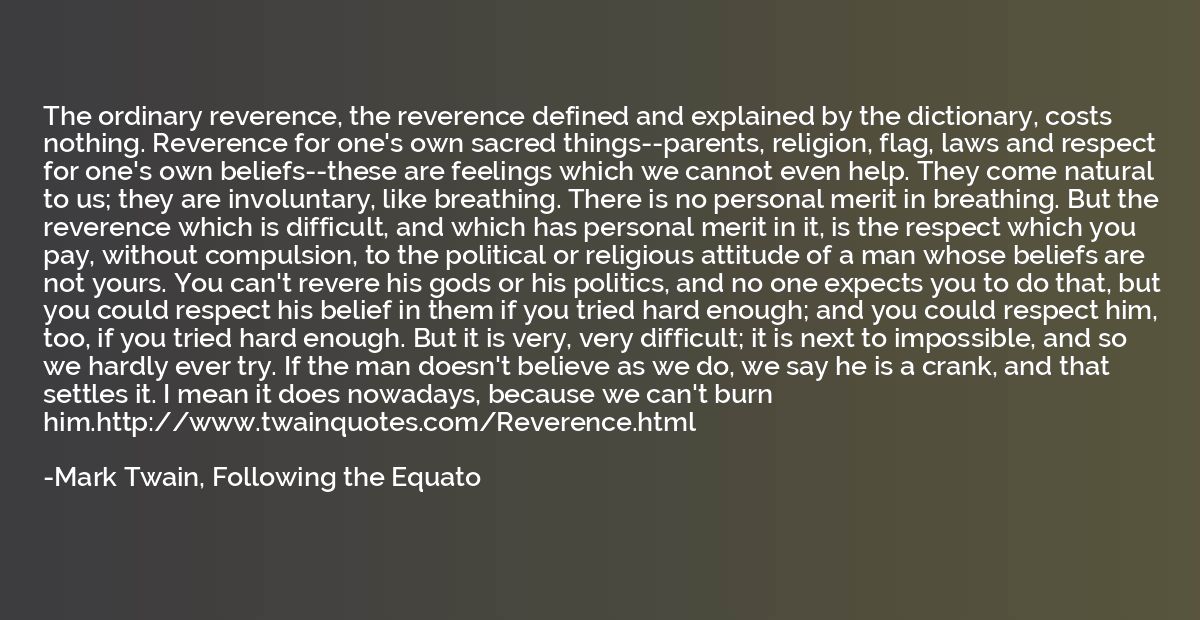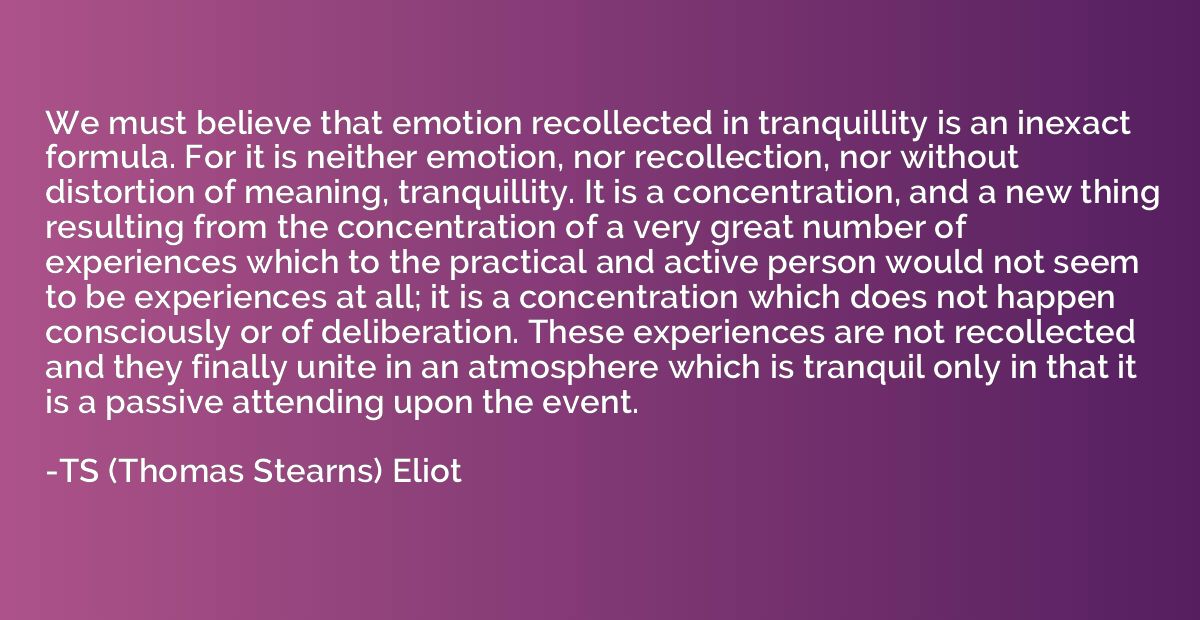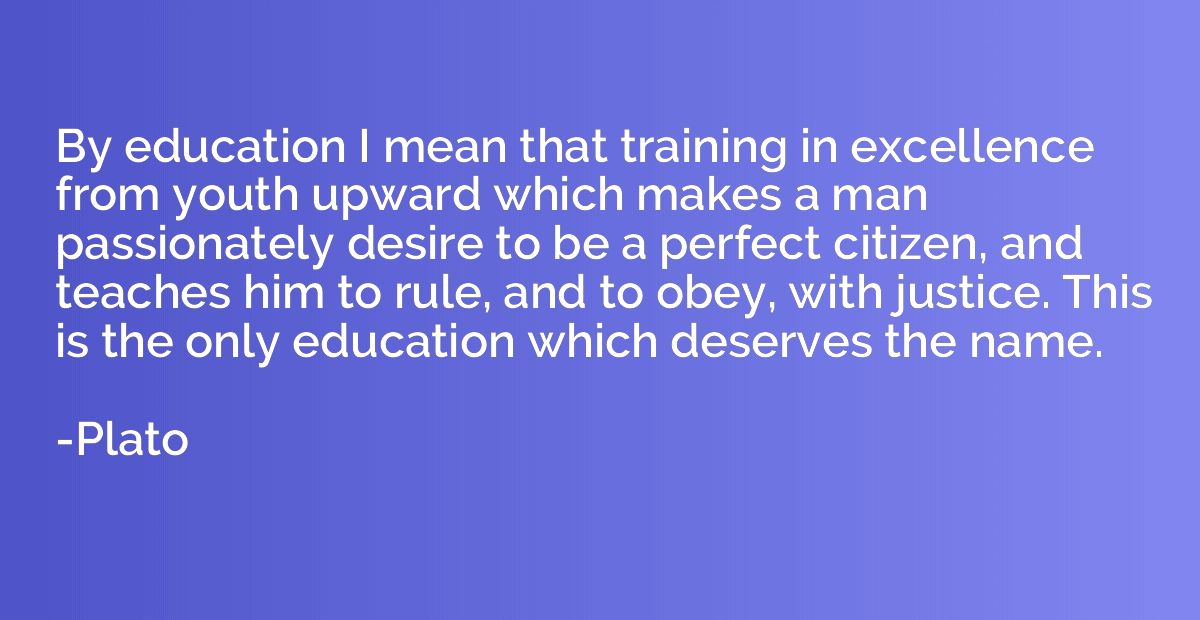Quote by Mark Twain, Following the Equato
The ordinary reverence, the reverence defined and explained by the dictionary, costs nothing. Reverence for one's own sacred things--parents, religion, flag, laws and respect for one's own beliefs--these are feelings which we cannot even help. They come natural to us; they are involuntary, like breathing. There is no personal merit in breathing. But the reverence which is difficult, and which has personal merit in it, is the respect which you pay, without compulsion, to the political or religious attitude of a man whose beliefs are not yours. You can't revere his gods or his politics, and no one expects you to do that, but you could respect his belief in them if you tried hard enough; and you could respect him, too, if you tried hard enough. But it is very, very difficult; it is next to impossible, and so we hardly ever try. If the man doesn't believe as we do, we say he is a crank, and that settles it. I mean it does nowadays, because we can't burn him.http://www.twainquotes.com/Reverence.html

Summary
This quote by Mark Twain highlights the distinction between ordinary reverence, which comes naturally to us, and the reverence that requires effort and personal merit. Twain suggests that it is easy to respect and revere things and people that align with our own beliefs and values. However, it is much more challenging to show respect for the views and beliefs of those who differ from us in politics or religion. Twain argues that this kind of respect, though difficult, is important. By acknowledging and respecting others' beliefs, despite our disagreements, we can foster understanding and empathy, rather than dismissing and antagonizing those with differing perspectives.














